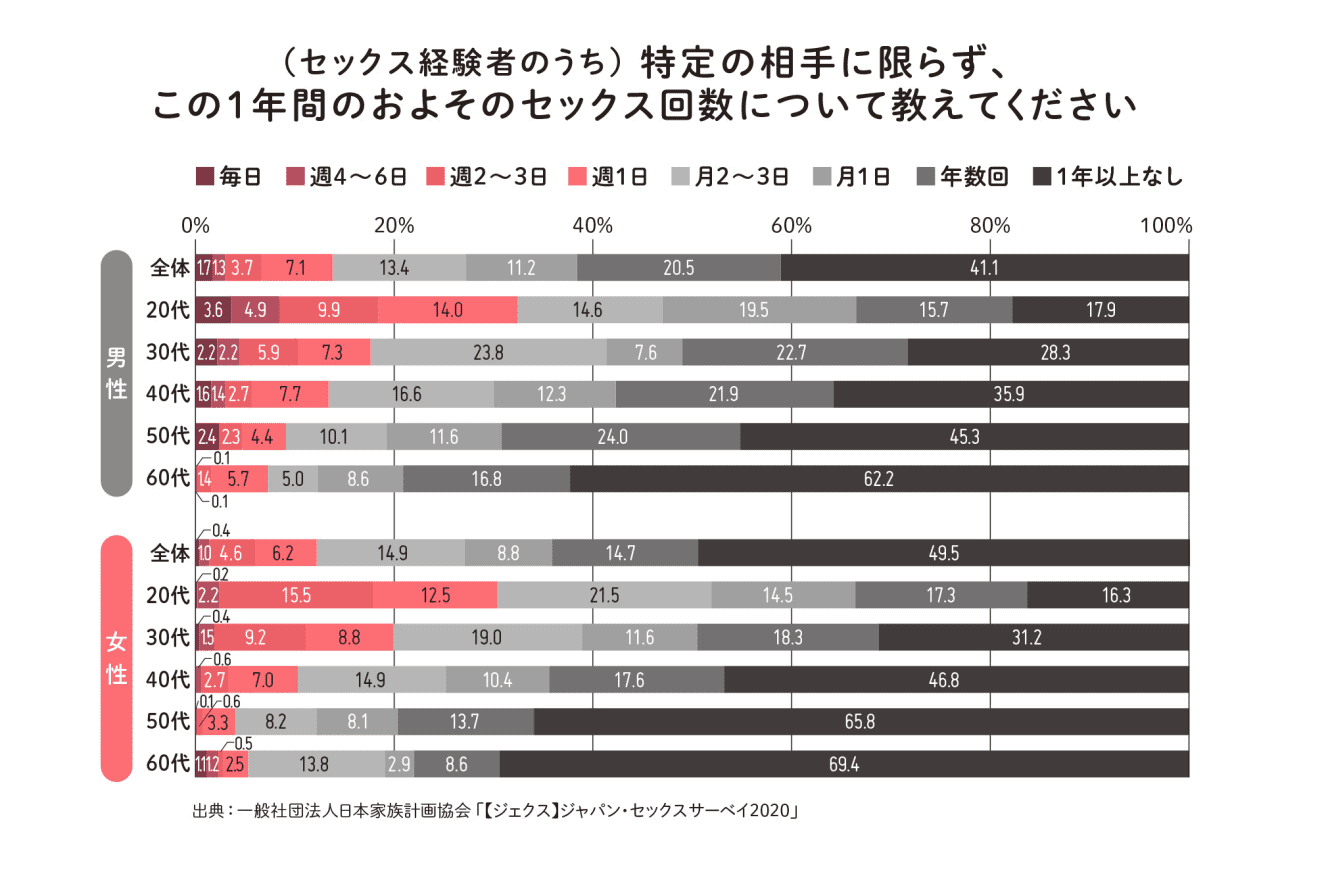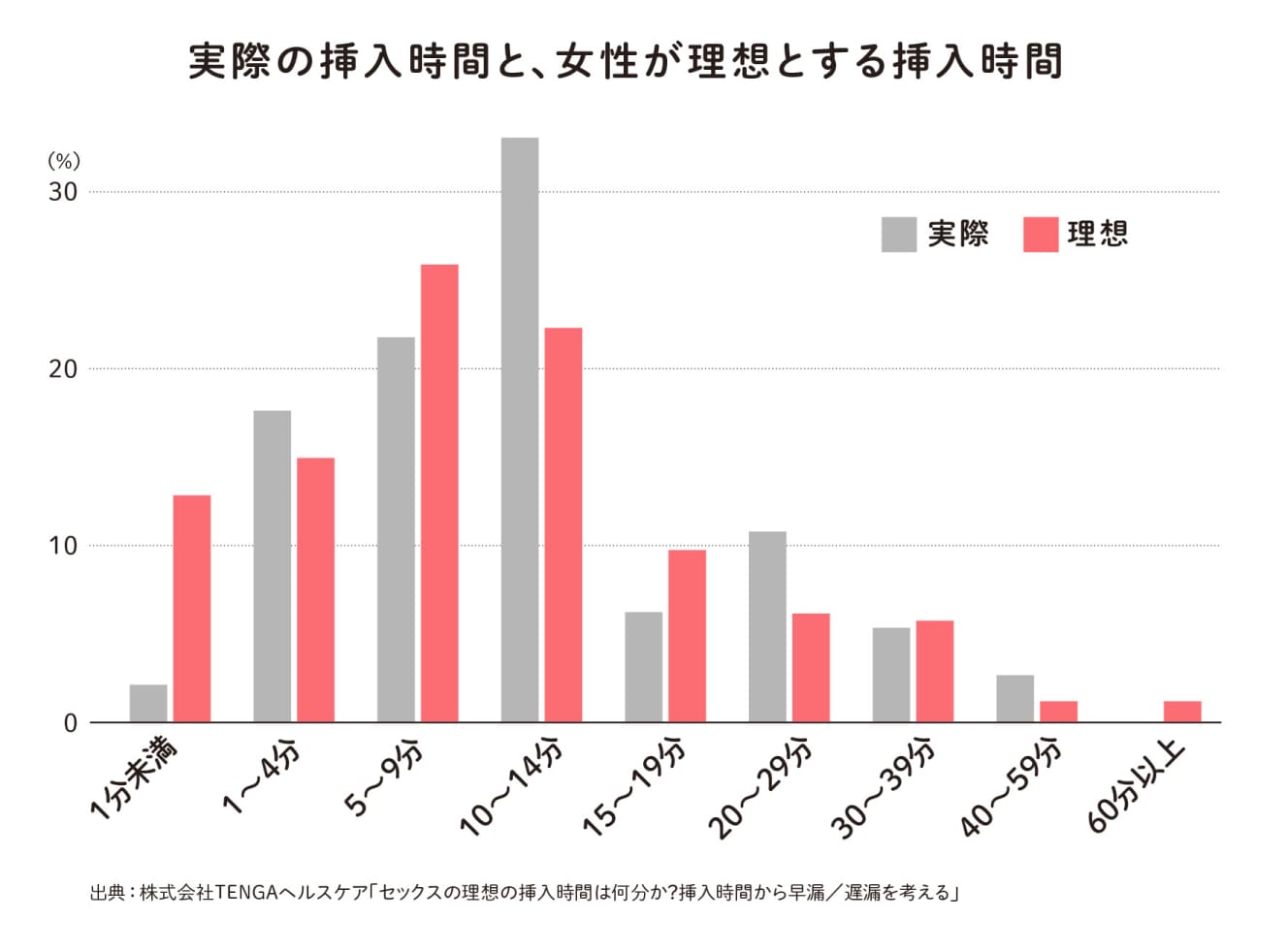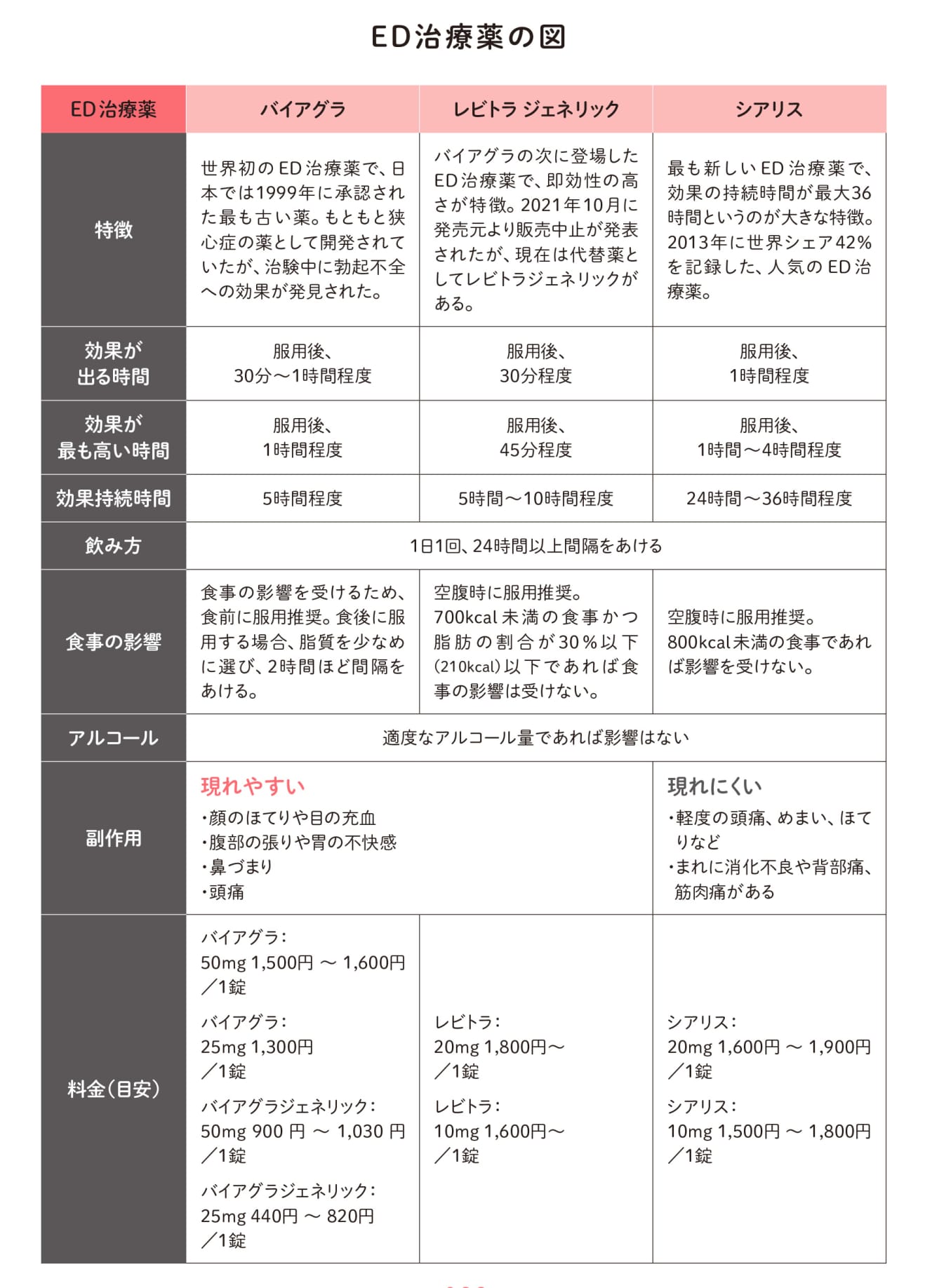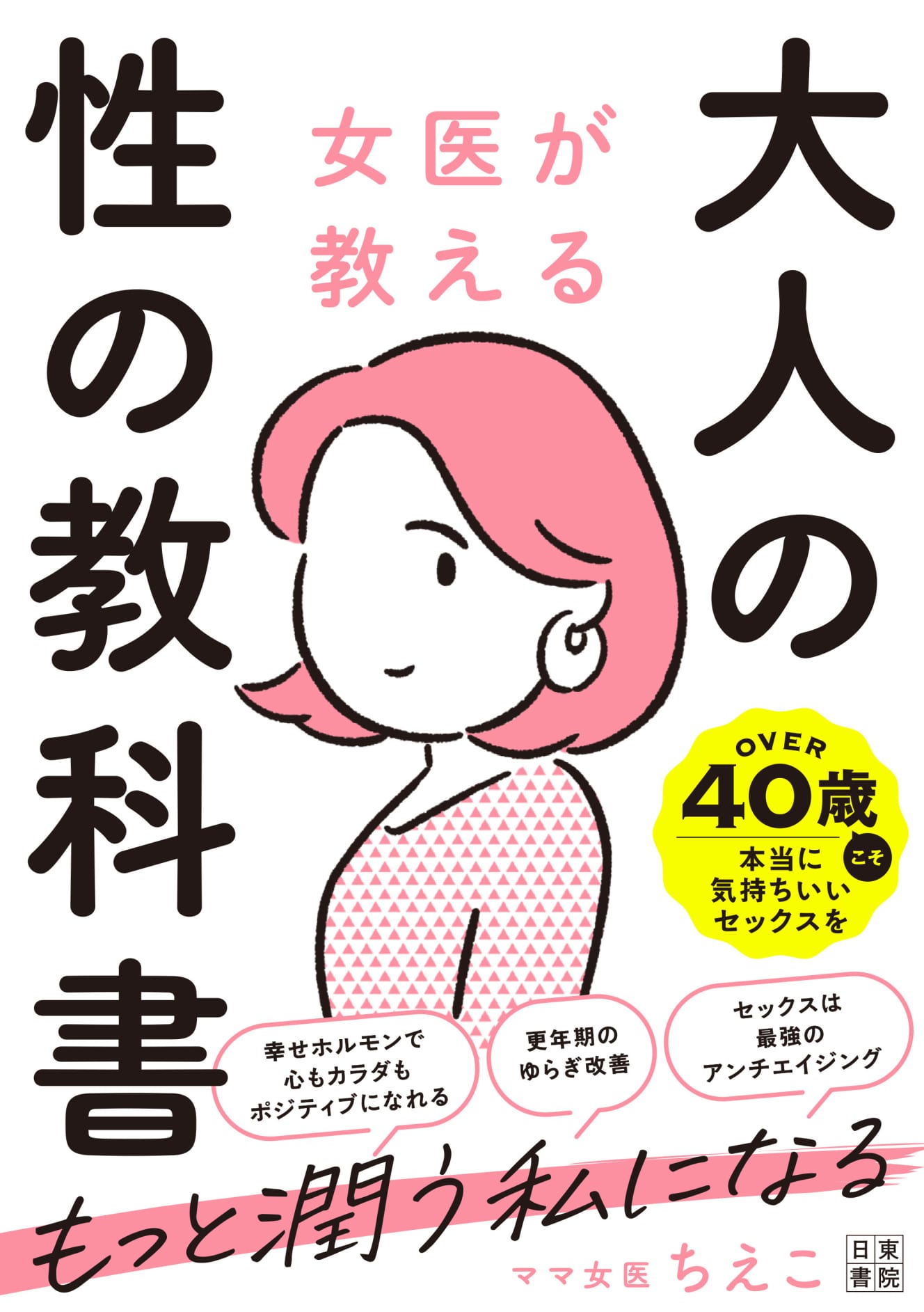Should we have sex because we are middle-aged or older? What female doctors teach us in “Textbook of Adult Sexuality.”
Sex can be enjoyed at any age. And being able to have sex is evidence of good health. An American study found that people who have sex at least once a week have lower mortality rates and less heart disease. Those who have sex regularly have a 69% lower cancer mortality rate. Sex is closely linked to health.
Dr. Chieko is an obstetrician/gynecologist and YouTuber. She also says in her recently published book, “A Woman Doctor’s Textbook on Sexuality for Adults” (Nitto Shoin Honsha) that “having sex is very good for your physical and mental health, even if you are middle-aged or older. We asked Dr. Chieko why it is good for physical and mental health to have sex even in middle age, as well as the physical changes that come to middle-aged and older men and what they should keep in mind when having sex.
Middle-aged men and women lack sexual knowledge.
Dr. Chieko’s motivation for writing this book was her wish that middle-aged men and women would have more correct sexual knowledge. She said that the middle-aged and older generation, which has had few routes to sexual knowledge other than systematic learning about sex at school, tends to lack information and knowledge in general, which causes many problems and prevents them from enjoying sex.
Some of the women who come to our outpatient clinic have never seen or touched their own genitals. There was also a woman who came to see us saying, ‘I had sex with a new partner after a long time, and it hurt like hell, even though it was fine when I was younger.
This is a natural phenomenon that occurs as women age, but it is not widely recognized. Some men also feel rejected when a woman refuses to have sex with them because of the pain. I sometimes think that such knowledge is not shared between men and women, making it difficult for them to have a good relationship with their partners.
Perhaps due in part to this lack of knowledge about the physical changes that come with aging, middle-aged Japanese men and women are not having sex. According to a survey by medical products manufacturer JEX Corporation, 35.9% of men in their 40s, 45.3% in their 50s, and 62.2% in their 60s have not had sex for a year or more. For women, 46.8% are in their 40s, 65.8% in their 50s, and 69.4% in their 60s. Furthermore, sexlessness among married couples is evident across a wide age range, with data showing that 51.9% of married couples between the ages of 20 and 69 were sexless in 2008.
While many middle-aged and older men and women in Japan are moving away from sex, there are many patients in their 50s and 60s who visit Dr. Chieko’s outpatient clinic who are enjoying their sex lives to the fullest, and the condition of their vaginas and other parts of their bodies are completely different when she examines them. As he commented at the beginning of his talk, sex is evidence of good health.
He said, “It’s hard to say in part which comes first: having sex because you are healthy, or being healthy because you are having sex. However, since sex itself is like exercise, it is thought to contribute to health by lengthening life expectancy as an exercise habit, or by lowering blood pressure, or by reducing stress and improving sleep quality, among other things.
In addition, on the mental side, skinship with a partner releases happy hormones such as oxytocin and serotonin. This has been shown to relieve stress and anxiety and lower depression levels.
Facing ED as a Health Issue First
For men, by far the most common change with aging is ED. According to Dr. Chieko, those who are unable to have sex because of ED must first confront ED as a health issue.
One of the causes of ED in middle-aged and older people is aging blood vessels. The arteries in the penis are among the thinnest arteries in the body, with a diameter of only about 1 to 2 mm. Even if large arteries such as the aorta do not show symptoms of arteriosclerosis, the thin arteries are prone to clogging and blood flow becomes more difficult. It is known that ED appears as a symptom of this. First of all, it may be necessary to look back at one’s lifestyle and eating habits.
If you are healthy, blood flows to the penis and the corpus cavernosum fills with blood to cause an erection. However, if your blood vessels are damaged due to hypertension, dyslipidemia, or diabetes, blood flow will also be poor.
One way to treat ED is to use ED medications.
Another symptom of aging is delayed ejaculation, which occurs when the speed of neurotransmission decreases, making it difficult to respond to stronger stimulation than before, and premature ejaculation, which is caused by a decline in muscle strength.
Weak muscles are also associated with ED. The muscles work well to provide the foundation for ejaculation, but if muscular strength declines, it becomes impossible to control ejaculation. Premature ejaculation and ED can be improved by exercising the pelvic floor muscles, known as “vaginal training,” or by strengthening the lower body through squats. There are reports that pelvic floor muscle exercises are as effective as ED drugs.
Sex that can be enjoyed by middle-aged and older adults
Like men who lose their erections, women’s vaginal mucous membranes become thinner and less elastic with age, and they have difficulty getting wet, which can cause pain during penetration. In addition, both men and women experience pain in the lower back and other joints. As a result, they can no longer do such and such things as they did when they were young.
In “Adult Sex Textbook,” Chieko introduces lubricants and positions that are less stressful on the body so that middle-aged and older adults can enjoy sex with ease. Among these, Dr. Chieko recommends “sex that is not restricted to insertion.
As I explained, many people feel that if insertion is the goal, it is a hurdle to overcome, but I tell them that insertion is not the only goal. It is not really the case that women are also looking for insertion very much. Some surveys have shown that many women prefer to spend less than 5 minutes in a relationship. In other words, it is a win-win situation if both parties do not get too caught up in penetration.
For many women, sex does not equal penetration, and happy hormones such as oxytocin do not necessarily come from penetration.
In sex that is intended for sexual communication to deepen the intimacy between two people and to confirm their affection for each other, forcing the man to insist on penetration can cause him to lose confidence and lead to painful intercourse for the woman.
What is really important in sex is foreplay. If sex is viewed as a form of communication, foreplay is an important part of intimacy. The more time you spend on foreplay, the more exciting and satisfying it will be.
This book introduces the “Sensate Focus Training” method, which allows you to enjoy sex without being limited to penetration. You and your partner can explore with each other where and how to touch each other to increase each other’s sexual arousal. The goal is to fully enjoy the process of getting to that point, whether there is insertion at the end or not. This is training for enjoying foreplay, which is only a process in sex where the goal is insertion, with closer communication.
Certainly, if it is acceptable to not be able to “insert” or to “break” the penis in the middle of sex, the hurdle to sex will be lowered considerably. If such sex is allowed, it would not be impossible for people to enjoy it at any age.
Of course, sex is for pleasure, but it also has many other benefits, such as communication with your partner and for your own physical and mental health. I would like you to know that.






